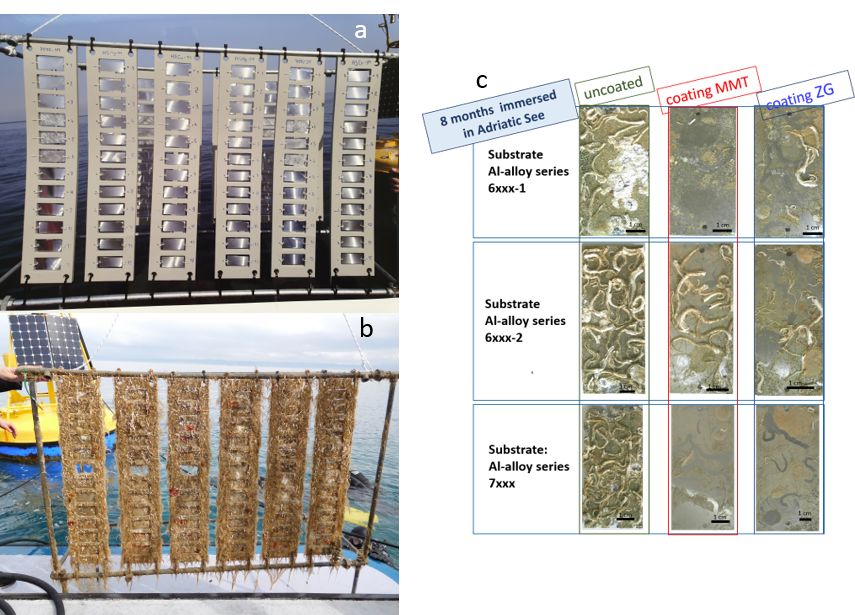Research programme
Corrosion protection
In the field of corrosion protection our research is focused on the following topics:
Antifouling coatings
Marine biofouling refers to the undesirable attachment and accumulation of microorganisms and macroscopic community of living organisms on artificial surfaces immersed in seawater. This process is undesirable for ships in motion because it causes the increase in fuel consumption and propeller power and reduction in top-speed; for stationary fixed and floating structures it reduces structural integrity, increases weight and causes corrosion damage. Therefore, artificial surfaces should be chemically protected by antifouling (AF) paints and coatings and/or clean mechanically to remove the biofilms. Usually, the combination of both is necessary to maintain the ships/structures in good condition. The most efficient antifouling paint was tributyl-tin (TBT) but it was banned due to its negative impact for marine organisms. Since then, search for environmentally friendly anti-fouling coatings is ongoing.

Figure: Panels with protective antifouling coatings (MMT and ZG) developed in our Department (a) before and (b) after (right) 8 months immersion in Adriatic Sea. The coatings were deposited on Al-based substrates. (c) Biofoul was easily removed from coated samples , but remained firm on uncoated substrates.
Projects related to antifouling coatings
M-ERA.NET Transnational call 2014 Design of corrosion resistant coatings targeted for versatile applications«, acronym COR_ID, coordinator dr. Ingrid Milošev, 2016–2019
Micro Grant of KET4CP Hydrophobic top coat for marine applications, partners International Iberian Nanotechnology Laboratory (IBN) and ChemiTek, Portugal, project leader: dr. Ingrid Milošev duration: 1.4.–1.10.2019